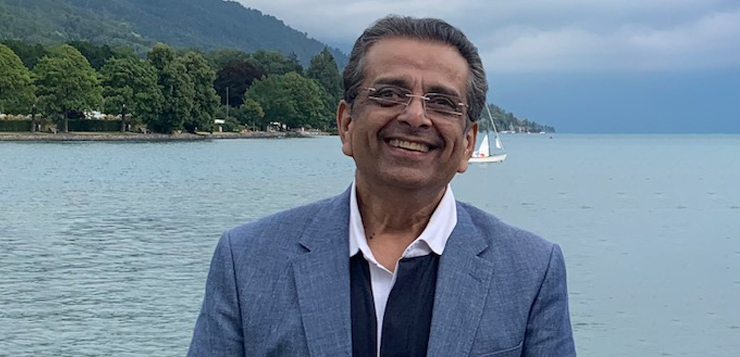
Interestingly, I have taken a page out of my son’s book. Beginning as a 14-year-old he championed the cause of Refuse If You Cannot Re-use in his goal to eradicate single-use plastics. He chose plastic straws as the most demonstrable item to remove and succeeded in curbing the use of over 26 million plastic straws annually in about 18 months, and this number keeps growing organically. He was recognised with a Diana Award and the King Constantin Medal for his contributions. I guess he was compensating for my sins.
I have worked with the world’s largest chemical (DuPont) and petroleum products (Shell) companies. I have had exposure to the data that show the negative impact of an expansion of the world’s carbon footprint. I have also seen and been part of the mitigation attempts like nurturing 1300 hectares of mangrove plantations in Hazira (Gujarat, India) to reclaim land for agricultural use. I have also sadly witnessed the thwarting of these kind of attempts (though not the Hazira mangroves venture) by vested interests through lack of knowledge or worse, believing their little knowledge offers the prescription for success.
Many years ago I wrote in The Economic Times that “governments can regulate, environmentalists can agitate, but only industry can innovate”. I am not a believer in leaving everything to just one player. When each member of society acts in concert we have a symphony of success. After all, innovations are mere responses to human needs.
Genetically modified (GM) seeds are a great example. Global population is exploding. Leave aside which type of economy or geography is contributing most to this number and recognise that there many incremental numbers of mouths to feed ever year. So, the relaxing image of my childhood where a farmer retained one bag of the grain he grew to use as seed for the next year is gone forever. These were organic seeds. They had a hit and miss record exacerbated by vagueries of weather. Governments had to plan for surer methods to feed their people. And large corporations with the resources to invest in research did so. Today, no farmer can keep a bag of grain as seed stock for next season. He needs to buy the seeds anew. But these seeds have been genetically tweaked to contain more carbohydrates less protein and arguably more sugar to fill hungry stomachs with lesser quantities of food. Good or bad ? You decide. Should we stop GM seeds and let populations starve? Or should we promote GM seeds and create downstream problems of rampant growth of diabetes in human beings to name just one medical issue?
The answer to the conundrum lies somewhere in between the two poles. The solution lies in more sustainable alternative technologies that reduce or eliminate harm to the environment. My humble assessment is that most agriculturists and agri-industries are not prepared for this transition nor is there any estimation, leave alone planning, for the sheer amount of technology, systems and processes and private, foreign and government funds required to enable the transition.
There is one reality that we all need to recognise and negotiate. The world’s weather is changing rapidly. It is going to play havoc with traditional cropping patterns and practices. This year, 2024 has witnessed the hottest days in Earth’s recorded history. In fact, July 21st had an avergae global surface air temperature of 17.09 °C. This unprecedented heatwave underscores the escalating impact of climate change on global temperatures and the fallout will be on food production and water resources. UN Secretary General Antonio Guterres has gone on record to saying “humanity is in the hot seat” and has described the current period as the “era of global boiling”. Climate scientists attribute this record heat to natural climate variability and the effects of greenhouse gas emissions.
To reduce temperatures, is planting trees the silver bullet for rampant urbanisation? The answer we all agree is yes. But how do we get urban planners to undertake such exercises in old established urban centers? Probably by ensuring that as the creep starts around these densely populated centers, each locality is tasked with planting Forests of Hope … a small cluster of say 195 trees (hopefully fruit-bearing trees) to reperesent the 195 nations that comprise the United Nations. Private land developers and other vested interests will refuse because they cannot monetise this investment in tomorrow. However, this will needs corporate education and incentivasation and ruthless governmental monitoring of implementation.
The bottom line is, as the world grapples with such extreme conditions, the need for robust climate action and putting in place strategies for sustainable alternatives has never been more critical.
